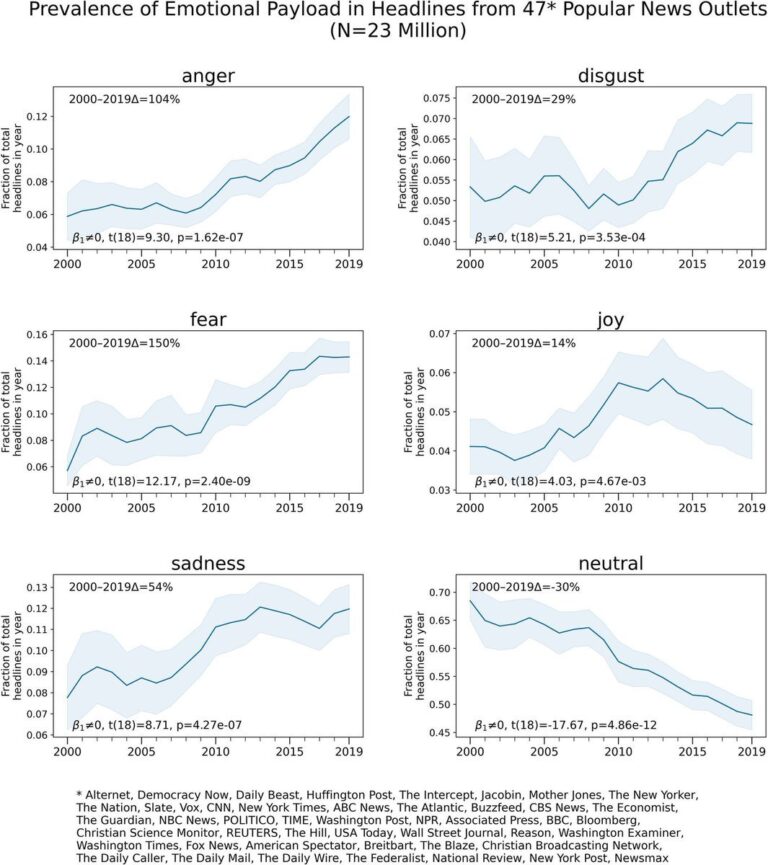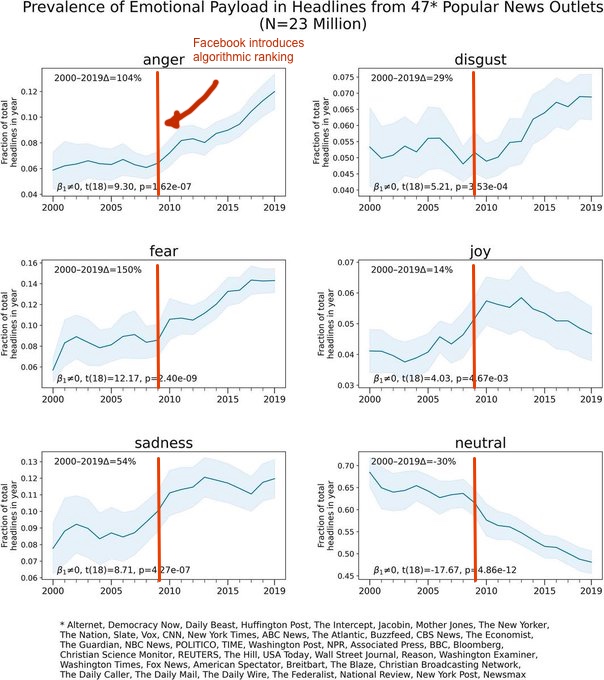Note: This is cross-posted from my newsletter in an attempt to both to make it easier to read this via RSS feed and to have this in my own independent archives. You can subscribe here to get it delivered to your inbox.
×
Hi there,
This is me sending my weekly newsletter for this quarter. So it’s been a while, partly because I’ve been busy, partly because I didn’t really write that much over the last couple of months, but I wanted to reach out before the summer break. Because, reminder for those of you outside Europe but with any projects going on that need input from folks in Europe, throughout August, things slow waaaaaay down over here. In August, almost the whole continent has their school summer breaks and as a result, not that much really gets done. I tend to find this time both enjoyable and hugely productive, and usually get some relevant reading done at the same time. But if you need a response or input from anyone, maybe make sure to send out that message today.
So! Enjoy the summer (or, y’know, winter if you’re down south) break and talk soon.
P.
PS. I’ve been meaning to move this newsletter out from Tinyletter and over to a platform that supports HTTPS, something that some of you kindly brought up a few times in the past. I haven’t forgotten about that, and I apologize for the inconvenience this causes with outgoing links. Just haven’t gotten around to it yet, but I will. Soon. Hopefully.
×
You’re receiving this because you signed up for this newsletter on tinyletter.com/pbihr or through my website, thewavingcat.com, the home of my boutique research and strategic advisory practice focused on making sure that emerging technologies actually benefit society. I’m also (but less frequently nowadays) on Twitter, Bluesky, and Mastodon. If you’d like to work with me or bounce ideas, let’s have a chat. I mean it: Reach out and let’s talk!
×
Updates from the Engine Room
Things are humming along smoothly. Lots of longer-term collaborations, which I prefer over short-term projects: Still working with Stiftung Mercator‘s Digital Society program, the European AI & Society Fund, as well as Sovereign Tech Fund, a German government program to strengthen public interest open source digital infrastructure ecosystems. (Btw, both Mercator and STF have great job opportunities either online now or about to go online later this year so if you know folks this might be interesting for, ask them to keep an eye out on their channels?)
Also, there’s a new project taking shape with a long-time friend and collaborator; it’s code-named Difficult Conversations for reasons that will become clear once we’re at a stage to actually share anything meaningful about it, but it’s still in the exploration phase. I’m excited about it, and looking forward to digging in, but this early I tend to treat these rough and raw ideas with the care of a young plant: They need care and time and some space, but you don’t necessarily want to put them where there’s too much direct light. Anyway, hopefully more soon.
×
Emotional Algos
Recently, this graph made the round on Twitter. It shows how news headlines have been getting more emotionally intense over the years: They appear to be written specifically to trigger anger, fear, etc.

Now I can’t speak to the validity of the data here, but there are a few things I find noteworthy.
First, this has been an ongoing trend for decades. There had already been a body of evidence of this happening in both print and TV even back when I got my masters in media studies in the early 2000s, and it wasn’t particularly new then. If memory serves, it was attributed, among other things, to the advent of cable TV. Which intuitively makes sense insofar as TV is concerned, public TV and commercial TV runs on fundamentally different business models and incentives. If you sell ads, you increasingly live off of “engagement”, i.e. how much time and attention viewers/readers spend on your product.
Second, I was wondering if there was anything that changed during this timeframe analyzed here. And quite a few things did, right? The political climate got a lot more radical in the US (which is the focus of this study), with Fox News turning things up to 11 and the Trump election and everything that led there. New, and more radical, meda outlets popped up.
Third, social media really took off and changed the way we consume and share news fundamentally. The rise of social media, new media outlets, and the radicalization of discourse would seem strongly interrelated.
Fourth, one specific aspect here strikes me as fundamental: The introduction of algorithmic recommendations on social media combined with behavioral tracking and content targeting across the web. I’m calling out Facebook because it was already a, if not the, dominant social media platform in 2009 when they ditched their chronological content delivery over to algorithmic recommender systems.

How we consume and share news has a profound influence on our public sphere and on the way we shape society. The web is also made by people, with intent; if it doesn’t work the way we made it, we can change it. Just like that.
I think we should take a very close look at which aspects of the way the web works right now are actually working and which aspects are broken — and breaking more things every day. There’s a lot that algorithmic recommenders can do for us, but as long as they’re couple to boosting engagement no matter what, we’re in for a bumpy ride.
×
Capitalism failed just as hard as socialism did. Now what?
So here’s a topic that comes up in many an awkward conversation with my (fairly conservative) dad. I feel pretty strongly that this deserves more explicit attention, that in political discussions we bury the lede. Failing to zoom out often means looking at the wrong problem set. I’m venturing a little outside my comfort zone here, but hear me out.
My hypothesis is this: Capitalism failed. Capitalism failed just as hard as socialism did. The problem is, we don’t yet have a good failsafe in place as this failure still continues to unfold.
Let me expand a little. I’ll try to keep this short, but it is a multi-part argument. I’d like to add that I’m not attempting a moral argument, or even a vaguely normative one (even though I feel there is a strong normative argument to be made). I try to stick to the facts as best as I can discern them.
There were a few major arguments in favor of capitalism & the neo-liberal approach:
First, capitalism with its focus on the market would bring more wealth to more people. It would create and distribute wealth in, ideally, a non-zero sum game. While capitalism creates wealth, the distribution of that wealth has largely been decoupled from its creation: The wealth doesn’t get distributed evenly. Wages have not kept up with GDP development at all. The wealth pools at the top. (OECD has some stats, so does Wikipedia) This has been going on for at least 2 decades.
Second, capitalism created better conditions for democracy, it would lead to a more democratic world. An argument that really gained traction in the 20th century was that socialism and authoritarianism would recede when faced with the additional wealth created by capitalism and trade. Simultaneously, after a few decades of expansion, democracy around the world is declining and authoritarian rule is expanding (Freedomhouse).
So, both those hopes have by now been shattered. (Incidentally, US National Security Advisor Jake Sullivan delivered remarks to that effectearlier this year that I found quite remarkable in their frankness.)
Third, capitalism would create greater wealth from generation to generation. Implied was not just more money, but also more freedom, higher quality of life, etc. Instead, what we’ve seen is that for a couple of generations, the people born between esp. between WWII and the 1970s/1980s, were more wealthy than their parents, but after that it dropped off again. Especially the bottom 50% wealth share collapsed (World Inequality Database). While my dad’s generation still could reasonably expect to have a significantly better life than his parent generation (higher wages, more wealth, more opportunity, better healthcare, higher quality of life, better education, higher life expectancy, you name it), my generation and the people born a little later could not expect that. In fact, we are financially worse off than our parents, even if we got to benefit from a lot of the quality-of-life upgrades massively (both the positive, like better healthcare; and the problematic-but-comfortable ones like cheap flights). The narrative that we had entered an era where every generation was in aggregate better off than their parents? Turns out it was most likely a blip spanning barely 3 generations.
Fourth, and maybe that’s the worst offender in my book, is that that economic growth there for a few generations over the span of like 50 years was driven to a ridiculous degree by externalizing costs. The costs were externalized to low-wage labor countries around the globe, to the environment, and to future generations. Between underpaying workers, stripping the planet of natural resources and burning absurd amounts of fossil fuels for energy, this short-term boost in wealth came at a huge cost. It literally pushed the planet to (and beyond) the limits that allowed for comfortable human life. We’ve only seen the early tremors of this, but climate change science tells us it’s going to get real bad, real soon.
In this specific sense, in the sense of resourcing needs and consumption, we also mustn’t forget that between 1950 and now, the global population more than tripled from 2.5b to nearly 8bn people, which puts a lot of extra stress on an already unsustainable system of externalizing the costs of growth to the planet.
In other words, it’s like these few generations (which I’m part of, at the very latest end of the spectrum) extracted an intense level of wealth and comfort from our planet, but it wasn’t sustainable in the least. It was like going deep into debt, and then dropping this debt on your successors.
This short spurt of intense capitalism and neo-liberal, global market activity leaves future generations with less, and much worse, options. With a severely restricted options space. From now on, for the foreseeable future and beyond, it’s not going to be about growth and better quality of life and more comfort. It’s going to be defensive: About trying to rescue what can be rescued, keeping things together in the face of adversity, and just overall about just getting by, if possible.
Capitalism & growth has quite literally killed the future. Yet, it’s still the dominant framework and it doesn’t feel like it’s about to be replaced soon.
We don’t have a great alternative system at hand, nor the political resolve to really get serious about a course correction. There’s interesting stuff happening around the edges (Vaclav Smil, degrowth, donut economy, etc, etc.) but I haven’t encountered a new theoretical framework that would guide us out of this crisis. If it exists, please let me know. I’m trying to learn more about this space.
I do, however, see quite a few hopeful signals. They’re a bit of a mish-mash and the dots don’t quite add up to a clean picture. Maybe we need to consider more dots, or maybe we just need to look at them from a different angle.
There’s definitively stuff happening. There’s more money flowing into renewables. The purely destructive fractions of the conservative movement, who consistently try to avoid any discourse by turning any issue into a culture war, look increasingly ridiculous and would seem they lose ground (but it’s going to get worse before it gets better). The onsetting effects of climate change are extremely visible even now, which might be a silver lining: At the very least, this puts the topic on the political agenda everywhere. And while decarbonization is going way too slow, we might be on the cusp of producing more energy than we need with renewables, and quite soon. (Energy prices more and more often dip into the negative because more is produced than used. Not everywhere all the time, but in more places and with increasing frequency.) A world structured not by energy scarcity but energy surplus would be unrecognizable from today, in the best sense possible.
Anyway. Lots happening. Let’s hope we can push through the current political efforts to block necessary change so we come out on the other side having bought future generations a little more time and space to fight for their futures.
×
A quick rant about German politics
I usually try not to rant too much here, but my frustration with German politics right now — both locally in Berlin and at the domestic level — is very high right now, so here’s a little rant on Germany for you. Germany (DE) has been one of the richest countries in the world for decades — and has squandered that wealth rather than make it work to solve pressing issues at home or abroad, or to get ready for the future.
An incomplete list of areas Germany has been fairly bad at (relative to its wealth): Equality, social justice, climate change, digital transformation, education, military, fighting populism, infrastructure, mobility, freedom of the press, social mobility. There are many others, but I’m just going to stop here.
A complete list of things Germany has been exceptionally (i.e. proportional to its position as 4th richest country in the world) good at: Exporting legacy technologies, mostly fossil-powered cars and the things that go into them.
Not only has DE failed to make its exceptional wealth work to address long-standing, pressing societal issues in all the areas listed above. The wealth has not been re-invested into strengthening infrastructure or excellent education or equality or innovation. It has not been redistributed to close or lessen the intense wealth gap. Germany’s wealth isn’t being put to use to deliver exceptional services to its citizens (digitally or otherwise). Maybe most importantly, it isn’t being put to use to sufficiently fight climate change, an area where Germany is hugely underperforming and is often an active veto player, more part of the problem then part of the solution.
Literally as I’m writing this, the newly elected conservative-social democrat coalition is actively slowing down the building of bike lanes to preserve car parking while building out a contested car highway that leads into the city so that commuters can drive more easily into the city. They’re traveling back in time to the 1950s, when cars were the future, and blocking the mobility transition we need today. This is just a small example of what I mean when I say the country is underperforming and part of the problem, but it’s the example that’s happening in front of my eyes. There are countless others.
How hard can it be for one the 4th richest country in the world to also take on the responsibility that comes with this immense wealth and power? Come on. Let’s do better.
End of rant. (Thanks for indulging me.)
×
Quick recommendations
- Jen Pahlka’s new book Recoding America, just out a few weeks ago, is excellent. Pahlka has an incredible experience at the intersections of tech, administration and policy. She founded Code for America, served as deputy CTO of the United States and co-founded the United States Digital Services (USDS). Here, she shares her insights and experiences in nudging government at all levels towards digital service delivery. I’m still in the middle but I can highly recommend it.
- Will Guidara’s Unreasonable Hospitality it a bit of an oddball choice for me to read, but I’ve seriously enjoyed it. Guidara helmed Eleven Madison Park, which was for a while ranked as the world’s top restaurant. No major insights to be gained but it’s an interesting mix of him sharing the growing pains of getting a restaurant and its team to this level of commitment and service delivery, some leadership lessons (if you’re into that kinda thing) and just an interesting glimpse behind the scenes of the restaurant world. It’s good, and a long-ish but still quick read.
- In a very different vein, Silo, the TV adaption of the Wool series of novellas, is fire. Hugh Howey’s self-published books take place in a not-too-far future in an underground silo where the residents don’t know much about their past or why they live underground, only that the outside world is uninhabitable after some disastrous, cataclysmic event took place hundreds of years in the past. I read the book years ago, and truly am enjoying the series. The world building is stunning, the actors are fantastic. It’s great!
That concludes it for today. Have a great day.
×
If you’d like to work with me or have a chat to explore collaborations, let’s chat!
×
Who writes here? Peter Bihr explores how emerging technologies can have a positive social impact. At the core of his work is the mission to align emerging technologies and citizen empowerment. He works as an independent advisor at the intersection of technology, governance, policy and social impact — primarily with foundations, non-profits and the public sector. Peter serves as special advisor to Stiftung Mercator’s Center for Digital Society, and as Interim Director for the European AI Fund. He co-founded ThingsCon, a not-for-profit that advocates for responsible practices in Internet of Things (IoT), and co-hosts the Getting Tech Right podcast. Peter was a Mozilla Fellow (2018-19) and an Edgeryders Fellow (2019). Based in Berlin, he tweets at @peterbihr and blogs at thewavingcat.com. Interested in working together? Let’s have a chat.
Know someone who might enjoy this newsletter? Please feel free to forward your copy or send folks to tinyletter.com/pbihr.
![Emotional Algos & the Failure of Capitalism [Connection Problem]](https://plus.unsplash.com/premium_photo-1668624623619-a16f5e15724d?ixlib=rb-4.0.3&ixid=M3wxMjA3fDB8MHxwaG90by1wYWdlfHx8fGVufDB8fHx8fA%3D%3D&auto=format&fit=crop&w=1798&q=80)



